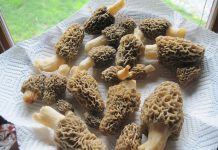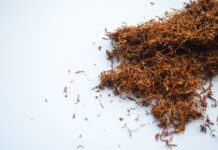When the cowboys of the National Cattlemen’s Beef Association ride into San Antonio for the Cattle Industry Annual Convention and NCBA Trade Show Jan. 27, the hottest topic of the four-day meeting won’t be stale markets, packer shenanigans or another ground beef recall.
No, the biggest bone to chew will be NCBA’s plan to put a big bite on the $80-million-per-year beef checkoff.
How big?
NCBA is angling to swallow every penny of checkoff cash it can reach, suggest documents that outline its new “governance” plan and letters commenting on the plan from the Cattlemen’s Beef Board (CBB), the USDA-appointed, 106-person group that administers the checkoff.
Wants it all
NCBA wants it all, says one CBB member familiar with NCBA’s plan. If it succeeds in San Antonio, he reckons, then expect NCBA to push to double today’s $1-per-head checkoff to $2.
It’s an audacious plan for the commodity group whose membership does not include 97 percent of American cattlemen and dairy farmers who, by law, must pay the non-refundable, federal checkoff.
(While NCBA keeps membership numbers tight to its suede vest, industry analysts estimate it at about 30,000. They quickly add, however, that 6,000 or so are “industry” affiliates — staff, academics and meatpacker, animal drug and equipment reps — who do not pay checkoff fees because they sell no cattle.)
But skinny numbers — and it doesn’t get much skinnier when 32 out of every 33 checkoff-paying cowboys refuse to join your group — has never bothered NCBA. In 1996, it muscled through a merger of its predecessor, the National Cattlemen’s Association and the Beef Industry Council. That deal was to “unify all segments of the beef industry.” It didn’t.
Hostile takeover
Now, as recent correspondence between NCBA and CBB clearly suggests, the new plan looks more like a hostile takeover of the checkoff than a “reorganization” of beef industry groups.
“Your current proposal,” warned CBB officials in an Oct. 31 letter to NCBA, “results in more of a takeover… than a merger, which is a 180-degree reversal of the structure previously embraced by the state beef councils.”
The letter also noted CBB’s strong objections to NCBA’s plans to redraw industry power lines to give NCBA at least 60 percent of the juice — cattle group votes — on most cattle issues, including the checkoff budget process.
“As such,” cautioned the CBB executive committee, “we feel compelled to tell you that we believe the proposed structure will create a conflict of interest so significant that it could ultimately cause the demise of the beef checkoff program…”
NCBA’s reply?
It removed a silly, 1950s-like loyalty oath it intended to impose on members of its new regime. It did not, however, according to a Dec. 8 letter from checkoff officials, address key concerns of potential conflicts of interest, the need for a stronger firewall between the checkoff and its contractors, and the proposed voting structure that essentially makes NCBA king of the cattle world.
Core of this debate
The core of this debate, however, is not beef politics or checkoff policy; it’s millions in checkoff money. NCBA wants — needs, say cattle insiders — more checkoff money to survive. Already it is the checkoff’s biggest contractor, touching an estimated $50 million per year.
But, say critics, the group lives beyond its means both in cattle country and Washington where, despite its thin membership rolls, it claims to represent the majority of the nation’s cattle.
Cattle don’t vote. Trouble is, cattle don’t vote; people do and 97 out of every 100 checkoff-paying cattle owners in America have voted to stay out of NCBA by not joining.
On that principle alone the new plan should be voted down in San Antonio: only the prime rib boys of NCBA want it and they have more hat than friends.













